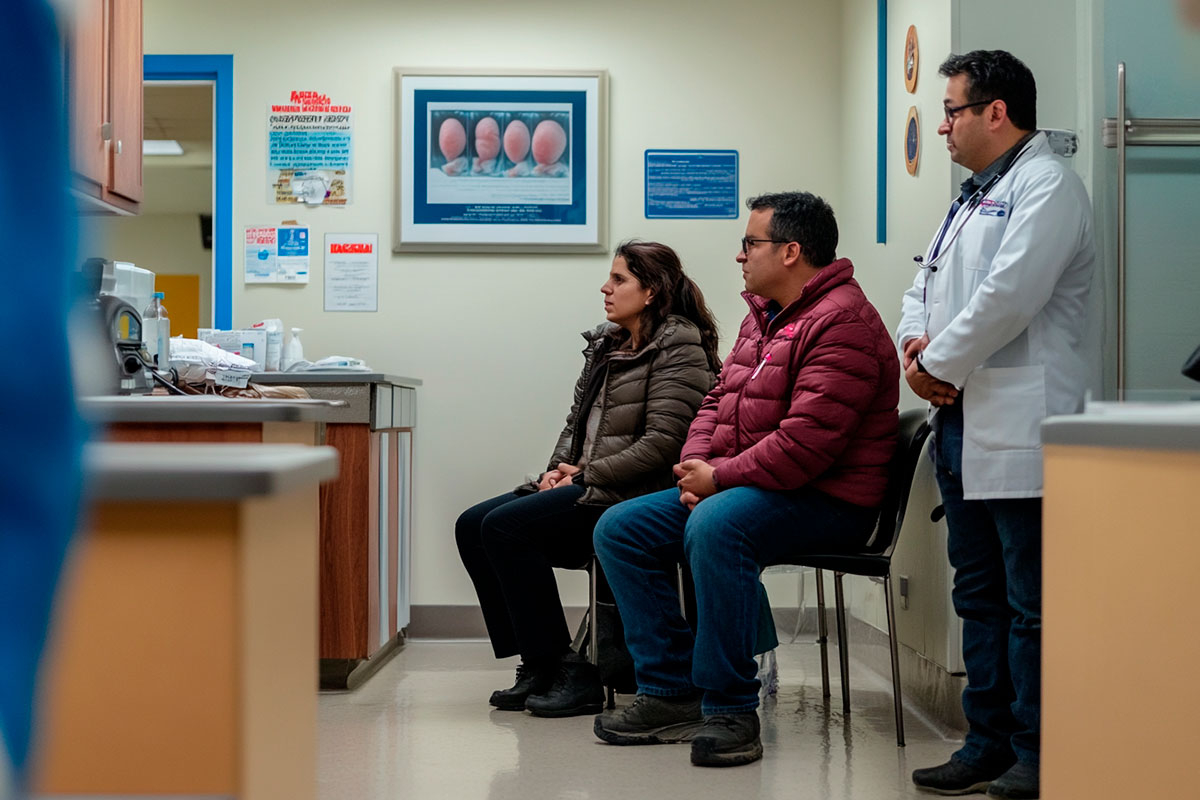
Artificial Insemination
Watch our video about Artificial Insemination
Artificial Insemination: A Comprehensive Guide
How is the Artificial Insemination Procedure Performed? What Are the Steps?
Artificial insemination (AI) is a fertility treatment where sperm is placed directly into the uterus to increase the chances of conception. The process involves several carefully managed steps:
- Initial Consultation: A fertility specialist evaluates medical history, hormonal levels, and uterine health to determine suitability.
- Ovulation Monitoring: Hormonal medications may be prescribed to stimulate ovulation, and Ultrasound scans are performed to track the development of follicles.
- Sperm Collection and Preparation: Sperm is collected, washed, and concentrated to improve its quality and mobility.
- Insemination: A thin catheter is used to place the prepared sperm into the uterus, ensuring it is close to the egg.
- Post-Procedure Care: The patient is advised to rest briefly after the procedure, which is typically painless and quick.
At Clinic Consultation, we ensure a comfortable and seamless process for every patient undergoing artificial insemination.
In What Cases is Artificial Insemination Indicated?
AI is suitable for individuals or couples facing specific fertility challenges, including:
- Unexplained Infertility: When no clear cause of infertility is identified.
- Mild Male Factor Infertility: Low sperm count or motility issues.
- Cervical Factor Infertility: When cervical mucus hinders sperm movement.
- Ovulation Disorders: Difficulty with regular ovulation.
- Same-Sex Couples: For women seeking to conceive using donor sperm.
- Single Women: Women pursuing parenthood independently.
- Immune System Disorders: When antibodies attack sperm.
Our specialists at Clinic Consultation provide personalised assessments to determine whether AI is the right choice for you.
Precautions and Preparations Before Artificial Insemination
Proper preparation can significantly impact the success of AI. Key recommendations include:
- Medical Tests: Complete evaluations, including hormone levels and ultrasound, to ensure optimal health.
- Healthy Lifestyle: Maintain a balanced diet, avoid smoking and alcohol, and manage stress levels.
- Timing Ovulation: Use ovulation kits or track cycles under medical supervision.
- Medications: Take prescribed ovulation-stimulating drugs as directed.
- Partner’s Health: If using partner sperm, ensure a healthy lifestyle to maximise sperm quality.
- Mental Preparation: Seek counselling or support groups to manage emotional stress during treatment.
At Clinic Consultation, we offer guidance and resources to help patients prepare for AI.
Conditions Required to Undergo Artificial Insemination
Certain conditions must be met for AI to be effective:
- Healthy Uterus and Fallopian Tubes: At least one functional fallopian tube is required.
- Viable Sperm: Partner or donor sperm should meet minimum quality standards.
- Hormonal Balance: Proper ovulation is essential for timing insemination.
- No Severe Male Infertility: In cases of very low sperm count or motility, other treatments like IVF may be recommended.
Our experts conduct thorough evaluations to ensure AI is suitable and has the best chance of success.
How Does Age Influence Artificial Insemination?
Age plays a critical role in the success of AI:
- Under 35 Years: Higher success rates as egg quality and ovarian reserve are optimal.
- 35-40 Years: Success rates gradually decline, and additional monitoring or medications may be needed.
- Over 40 Years: Success rates are lower due to reduced egg quality and quantity, but AI can still be effective in certain cases.
At Clinic Consultation, we provide age-appropriate advice and options to maximise success.
Difference Between Artificial Insemination and In Vitro Fertilisation
While both AI and IVF are fertility treatments, they differ significantly in approach:
- Artificial Insemination: Sperm is placed directly into the uterus to fertilise the egg naturally.
- In Vitro Fertilisation: Eggs are fertilised with sperm in a lab, and embryos are implanted into the uterus.
AI is less invasive, more affordable, and suitable for mild infertility cases, while IVF is often used for more complex fertility issues. Our specialists help patients choose the best option based on their circumstances.
How Soon Can I Take a Pregnancy Test After Artificial Insemination?
A pregnancy test can typically be taken 10-14 days after insemination. Testing too early may result in false negatives due to insufficient hormone levels.
At Clinic Consultation, we provide clear instructions on when and how to test for pregnancy following AI.
What Are the Success Rates of Artificial Insemination?
The success of AI depends on various factors, including age, fertility issues, and lifestyle. On average:
- Under 35 Years: 10-20% success rate per cycle.
- 35-40 Years: 10% success rate per cycle.
- Over 40 Years: Success rates decline to 5% or less per cycle.
Multiple cycles may increase overall success rates, and lifestyle improvements can positively impact outcomes.
Book Your Artificial Insemination Consultation at Clinic Consultation
Artificial insemination offers a promising pathway to parenthood for many individuals and couples. At Clinic Consultation, our expert team provides compassionate care, personalised treatment plans, and state-of-the-art facilities. Schedule your consultation online today to take the first step towards building your family.
Click here to schedule an appointment online